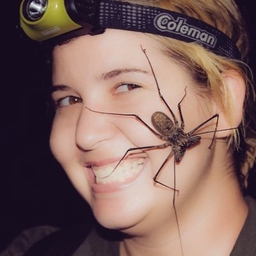
Christie Wilcox
Newsletter Editor at Science Magazine
Newsletter Editor for @ScienceMagazine Sign up: https://t.co/PGa50ahcTb | Threads https://t.co/YCD5c5yQ91 | BSky https://t.co/FHLAfsMrid
Articles
-
2 weeks ago |
science.org | Christie Wilcox
The newly discovered microbe provisionally known as Sukunaarchaeum isn’t a virus. But like viruses, it seemingly has one purpose: to make more of itself. As far as scientists can tell from its genome—the only evidence of its existence so far—it’s a parasite that provides nothing to the single-celled creature it calls home.
-
3 weeks ago |
science.org | Christie Wilcox
Today’s The Life Academic looks at the kerfuffle over apparent AI use in generating last week’s Make America Healthy Again report. But first, catch up on the latest science news, including leprosy’s ancient American roots. Climatology | Science Current climate policies aren’t enough to save glaciers from melting Melting of the ice cap on top of Africa’s highest peak, Mount Kilimanjaro, affects local communities and ecosystems.
-
4 weeks ago |
science.org | Christie Wilcox
Today’s Visualized takes a new look at the Sun. But first, catch up on the latest science news, including how not all deer act like deer in headlights. Paleontology | Science Dinosaurs of a feather nested together in the Cretaceous Arctic A new study finds that birds nested in the Arctic alongside non-avian dinosaurs (as shown in this artist’s illustration) during the Cretaceous period. Gabriel Ugueto Today, birds like puffins and ivory gulls tough out life in the frigid Arctic.
-
1 month ago |
science.org | Christie Wilcox
$Please enter a valid amountEmail:Please enter a valid emailCountry:Ialso wish to receive emails from AAAS/Science and Science advertisers,including information on products, services and special offers which mayinclude but are not limited to news, careers information & upcomingevents. Support nonprofit science journalismSophisticated, trustworthy reporting about science has never been more important.
-
1 month ago |
science.org | Christie Wilcox
Today’s Visualized examines a very jumpy little robot. But first, catch up on the latest science news, including how stinky plants got their stench and what happened when people fished out all the old herring. Artificial Intelligence | News from Science AI tried—and failed—to predict the next pope Yesterday, the Vatican announced that U.S. Cardinal Robert Prevost would be the next pope.
Try JournoFinder For Free
Search and contact over 1M+ journalist profiles, browse 100M+ articles, and unlock powerful PR tools.
Start Your 7-Day Free Trial →X (formerly Twitter)
- Followers
- 18K
- Tweets
- 29K
- DMs Open
- No

RT @ScienceMagazine: #ScienceAdviser has won Gold for Short Form Content at the 2025 #EPICawards. Sign up to receive the #newsletter to yo…

RT @ScienceMagazine: The #EPICawards from the Society for Scholarly Publishing recognize and celebrate remarkable teams and individuals in…

Last week’s Blatten disaster showcased the consequences of melting glaciers. With existing climate policies, more than 3/4 of global glacier mass is set to disappear. That and more from @ScienceMagazine and science in this edition of #ScienceAdviser: https://t.co/fCoXvfmH7g https://t.co/V9B7SOBjYX